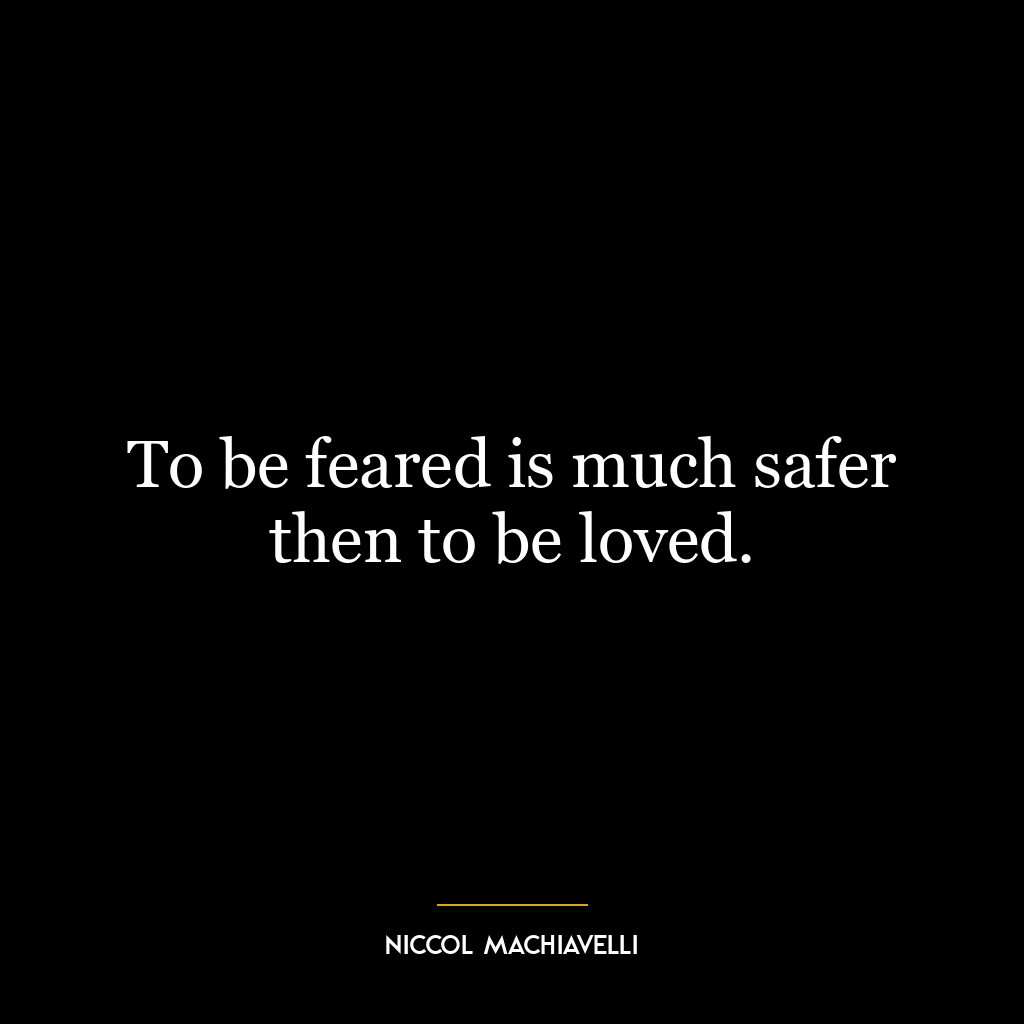To be feared is much safer then to be loved.
The quote “To be feared is much safer than to be loved,” is a profound statement that emphasizes the power of fear over love in the realm of leadership and control. It suggests that fear is a more reliable tool for maintaining power and influence, as it is a more consistent and predictable emotion compared to love, which can be fickle and changeable. Fear, according to this quote, is more likely to ensure obedience and loyalty because people will avoid actions that might provoke the wrath of the one they fear.
This quote also implies a pragmatic approach to leadership, where the ultimate goal is stability and control, rather than affection or admiration. It suggests that leaders who are feared are less likely to be betrayed or overthrown, as the potential consequences of such actions are too daunting.
In today’s world, this idea can be seen in various forms of leadership and power dynamics, from politics and business to social groups and families. Leaders who rule with an iron fist often maintain control more effectively, as their subordinates are too afraid to challenge them. However, this kind of leadership can also breed resentment and rebellion in the long run.
In terms of personal development, this quote could be interpreted as a reminder that fear can be a powerful motivator. While it’s not healthy or productive to live in constant fear, a certain amount of fear can push us to take action, make changes, and strive for success. For instance, the fear of failure can motivate us to work harder and achieve our goals.
However, it’s important to note that while fear can be a powerful tool, it should not be the only tool in one’s leadership or personal growth arsenal. Love, respect, and positive reinforcement can also be effective motivators and can lead to a more harmonious and productive environment.














